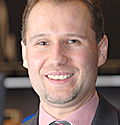Bonds: No clear direction

While the US Federal Reserve kept quiet this week, the Swiss lowered their key interest rate to zero – and negative interest rates could soon be back. The war in the Middle East is affecting the market in two ways.
20. June 2025. FRANKFURT (Börse Frankfurt). Uncertainty surrounding the Israel-Iran war has the markets firmly in its grip. The big question now is whether the US will enter the war. For the bond market, the uncertainty has two opposing effects: On the one hand, it is leading to increased demand for “safe havens” such as German government bonds – and pressure on yields. On the other hand, the sharp rise in oil prices is increasing the risk of inflation, which tends to favor rising yields. The bottom line is therefore a sideways trend. The yield on ten-year German government bonds continues to fluctuate around 2.5 percent, standing at 2.51 percent on Friday morning.
“Patience is the order of the day for the US Federal Reserve”
In the US, Federal Reserve Chairman Jerome Powell left key interest rates unchanged on Wednesday. In doing so, he once again defied US President Trump's vehement demands to lower interest rates. However, Powell continued to signal two interest rate cuts this year. According to Tim Oechsner, who trades bonds for Steubing AG, the Fed finds itself in a tense situation: on the one hand, there are the negative effects of US policy on the economy and the labor market, which argue for lower interest rates, at least in the medium term. On the other hand, tariffs and rising oil prices could fuel inflation, making higher interest rates necessary. “Patience is clearly the order of the day; Powell wants clarity first. Donald Trump is unlikely to like that,” comments Oechsner.
Other central banks were also active this week: the Swedish Riksbank, the Norwegian central bank, and the Swiss National Bank (SNB) lowered interest rates, with the SNB even returning to 0 percent. The Bank of England left its key interest rate unchanged.

Tim Oechsner
Negative interest rates again?
The Swiss key interest rate remained positive for just over two and a half years, as Sandro Pannagl from LBBW writes. With the zero line now reached, negative interest rates are once again conceivable in the near future.
Seven-year bonds expected
Next week, the German Finance Agency is likely to once again include seven-year federal bonds in its issuance calendar on behalf of the Federal Republic, according to Commerzbank analyst Hauke Siemßen. “The aim is to accustom the market to the seven-year maturity band in order to generate significantly higher proceeds from government bond issues, probably starting next year,” he explains. These proceeds are necessary to finance the looming infrastructure and defense spending. Seven-year bonds were already issued during the coronavirus crisis, but new issues were suspended in 2024.
Strong demand for Siemens, Knorr, VW, and EnBW
In corporate bond trading, Steubing dealer Oechsner sees strong demand for securities from major German companies such as Siemens with a maturity date of 2028 (DE000A1UDWN5), Knorr-Bremse with a maturity date of 2029 (XS2905504671), VW until 2031 (XS2694874533) and EnBW until 2035 (XS2942479044), with current yields of 1.88 percent, 2.57 percent, 3.49 percent and 3.57 percent. Also popular: bonds from Swiss food company Nestlé maturing in 2035 (XS2717310945) and currently yielding 3.24 percent.
The top seller at Walter Ludwig Wertpapierhandelsbank this week is a new long-term bond from Gothaer Allgemeine Versicherung with 5 percent until 2045 (XS3092574055), as Gregor Daniel reports. “The bond was only bought,” he notes. However, the minimum investment amount is €100,000. He also sees purchases for bonds from MTU Aero Engines maturing in 2031 (XS2887896574), Sixt 2029 (DE000A3827R4) and Fraport 2032 (XS2832873355), which currently yield 3.26 percent, 2.86 percent and 3.37 percent, respectively.

Gregor Daniel
Formycon issues bond
According to Daniel, the first bond issued by biotech company Formycon (NO0013586024) can be subscribed to from today until June 30. The bond, in Nordic format and with a volume of €50 million, matures in 2029, with an interest rate of Euribor plus 7 to 7.5 percent. Formycon – long in the Scale segment and now in the Prime Standard – produces biosimilars, i.e., generic versions of biotechnologically manufactured drugs. The company intends to use the proceeds to systematically advance its growth strategy.
By Anna-Maria Borse, 20 June, 2025, © Deutsche Börse
About the Author
Anna-Maria Borse is a financial and business editor specializing in financial markets/stock exchanges and economic issues.
Feedback and questions to redaktion@deutsche-boerse.com





